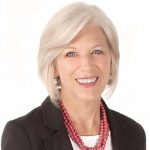Editor’s Message
By Cynthia Ackrill, MD, PCC, FAIS
*This is an article from the Fall 2020 issue of Contentment Magazine.
In early spring, when all this Covid horror started, it felt empowering to “score” some toilet paper and hunker down to weather the storm. But now, after months and months of uncertainty, fear, and total life disruption, many of us are finding our coping skills and resources completely overwhelmed. Social isolation, racial unrest, economic strain, and political divisiveness have added to the piles of stress our minds and bodies have to process.
Stress is cumulative. It takes energy to manage both our big fears (“What if someone I love gets really sick? Will I ever recover economically?), as well as all the minor frustrations of the day (waiting in line to even get in the store, zoom fatigue). When the energetic demands exceed our capacity to handle them, the stress can get toxic, affecting us mentally and physically. This issue of Contentment offers you ways to better understand this process so you can make adjustments to reclaim your energy and your mental and physical health.
I included an article that explains why this shift from acute to chronic “crisis” mode is so important to recognize and how you can adjust your perspective from searching for external guidance to tapping into your inner resources. In the last issue, I had discussed the need for ramping up your self-care to increase your energy capacities to meet the demand. This article builds on that foundation to help you find your inner G.P.S. to navigate this “chronic crisis.”
Jeff Jernigan, PhD, BCPPC, FAIS shares a comprehensive and easily comprehendible explanation of how improperly processed stress naturally leads to physical and mental symptoms. Understanding this progression and what you need to effectively handle stress empowers you to change the trajectory and build in habits to support your health and happiness.
Maureen McCarthy, Co-Founder of The Center for Collaborative Awareness, once again offers us a powerful perspective shift that she has created to deal with stress, stress that could be fatal to her because of her 10% lung capacity. She has so beautifully taken her challenges and created ways to interact with the world beyond our automatic stress-reaction wiring. In a world reeling from pressures right now, this shift could make a huge difference in how the stress affects your well-being.
Cynthia Howard, RN, CNC, PhD, FAIS discusses the powerful impact of loneliness. In recent years there has been growing research examining the relationship between loneliness and stress, burnout, and other physical and mental health issues. As Covid has wreaked havoc with our social health, we are all vulnerable. Cynthia shares her personal story, the latest science, and some tools to help you reconnect.
Ron Rubenzer, EDD, MA, Mph, MSE, FAIS addresses a specific type of stress so many of us experience: test-anxiety. He shares some general perspective on the topic of testing and test-anxiety as well speaks to the unique position schools are in because of the “Covid-pause.” He then offers concrete strategies to shift from test anxiety to test confidence.
William C. Heckman, MS, NBCT, DAIS has been doing a masterful job of creating podcasts for AIS, interviewing experts in a variety of fields directly or indirectly related to stress. His article lists a number of really unique episodes that may pique your interest. Podcasts offer another way to feed your brain. Goodness knows we need a steady dose of motivation and information to find new ways to handle the challenges of life. I find podcasts to be a great way to help the hour of exercising go by faster and Will’s curiosity and laughter are infectious.
And to end on a truly fun note, we have an article from Heidi Hanna, Ph.D. about the power of humor to help us handle stress. Of course, we know it just feels good to have a belly laugh now and then, but there is real science behind the positive effect’s wit, mirth, and laughter can have on our brains, even when we are managing serious life challenges. Heidi shares some specific steps you can take to up your funny muscles.
We hope you find some inspiration and support in this issue. There is certainly a lot of science and heart poured in. Please know there are many other resources available through AIS as well as many professionals ready to help. Never hesitate to ask! These are extraordinary times and we all need to take care of ourselves and each other.
– – – – – – – – – – – – – – – – – – – – – – – –
Cynthia Ackrill, MD, PCC, FAIS
Editor
Contentment Magazine
The dictionary defines “content” as being in a state of peaceful happiness. The AIS magazine is called Contentment because we want all of our guests and members to find contentment in their lives by learning about stress management and finding what works best for each them. Stress is unavoidable, and comes in many shapes and sizes that makes being in a state of peaceful happiness seem like a very lofty goal. But happiness is easy to find once you are able to find ways to manage your stress and keep a healthy perspective when going though difficult times in life. You will always have stress, but stress does not always have you!
